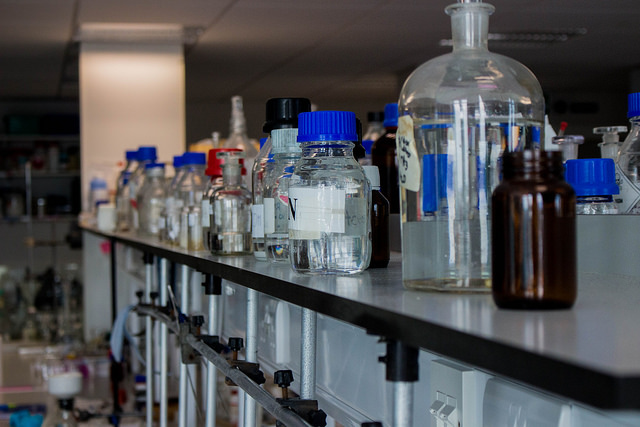For drug developers and cancer researchers, two separate Trinity-led chemistry discoveries could result in significant advances in both fields, offering new research possibilities.
The two discoveries were supervised by the Professor of Organic Chemistry at Trinity, Mathias O Senge. Leading two teams, Senge guided the groups to discoveries that will help molecular engineers, materials and computer scientists and energy researchers.
The first team discovered a way of handling cubane, a synthetic molecule, which is used widely in the pharmaceutical industry. The molecule is notoriously difficult to handle due to its reactivity.
“We have a structurally unique building block which has been neglected by the majority of synthetic chemists up to now, precisely because this cube is so difficult to work with”, explained Senge in a press statement.
Drug development companies will now be able to use the molecule with greater ease, opening the door to create more diverse therapies from the molecule. “The results from this long-term, fundamental research project will have significant benefits in the years to come as we can now prepare a greater variety of tailored compounds”, said Senge.
Their findings have been published in the international journal Chemistry – A European Journal.
Senge said that he was “delighted” with the success of the discovery and excited about the possibilities it would enable “in fields ranging from new drug discovery to 21st-century computer chip generation”.
Another team of scientists, also led by Senge, demonstrated how to reconfigure porphyrins. Porphyrins, also known as “the pigments of life”, are responsible for the green colour of leaves and the red colour of blood. This discovery opens new possibilities to molecular engineers, material scientists and computer scientists for research based on these natural pigments.
The five-strong research team discovered that by overcrowding the large porphyrin ring, they could force it to turn inside out and change into a shape similar to a saddle. This feat enabled them to exploit the special properties of the formerly inaccessible core. One property discovered was that these metalloporphyrins act as efficient metal-free catalysts.
This discovery has revealed the potential of porphyrins as useful players in the fields of cancer therapy, solar energy and material science.
Senge and his team worked closely with Professor of Synthetic Chemistry in Trinity, Stephen Connon.
In a press statement, Senge said that he hopes to see the research used “for various applications in chemistry, biochemistry, physics and beyond”.







